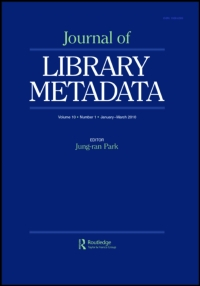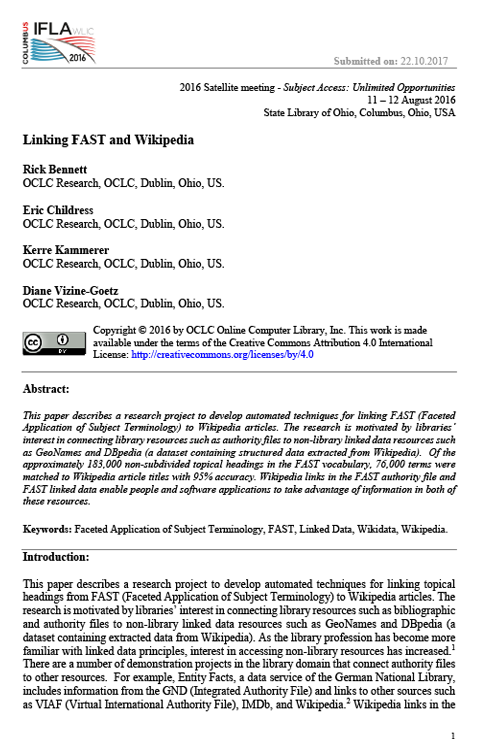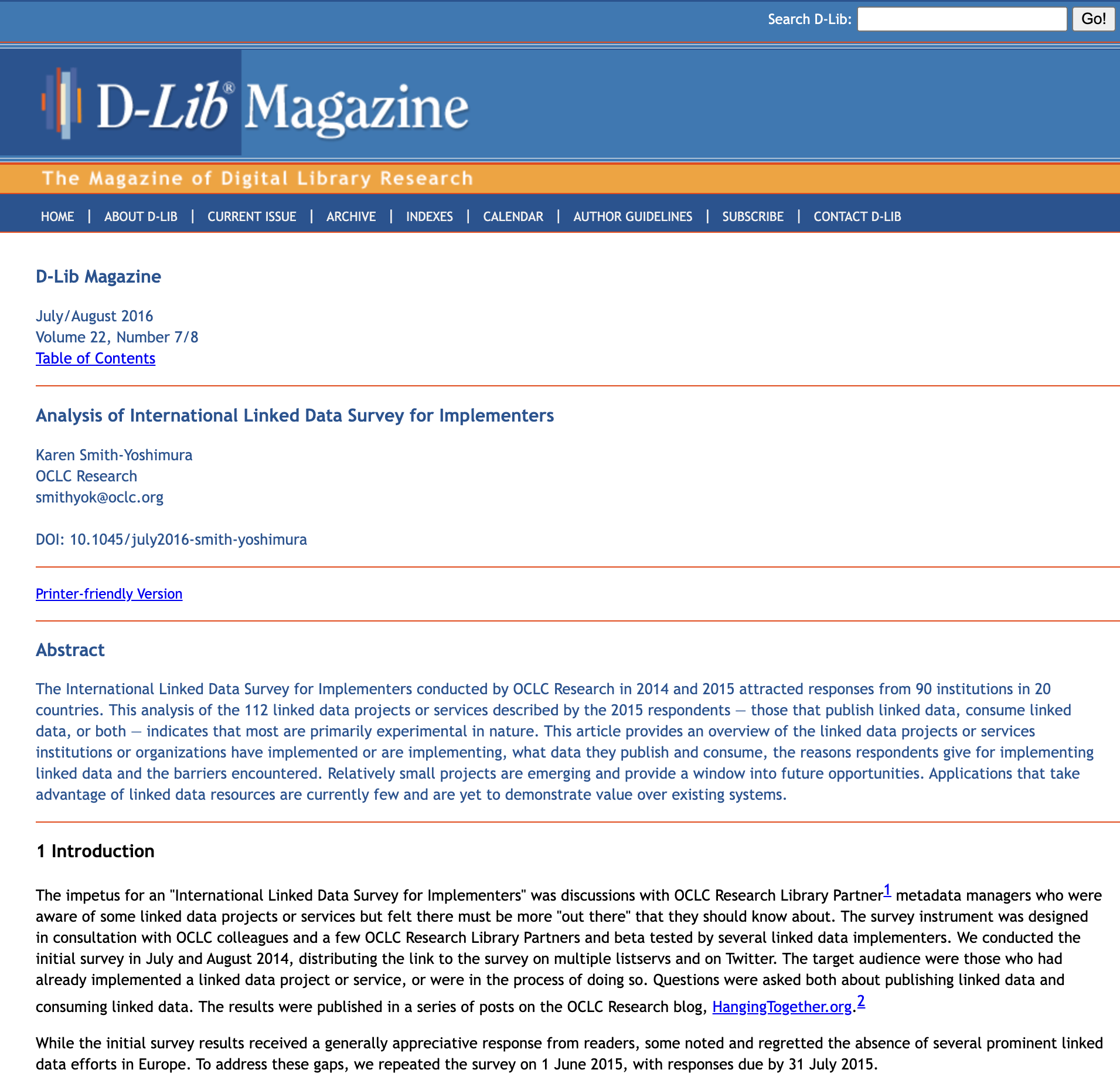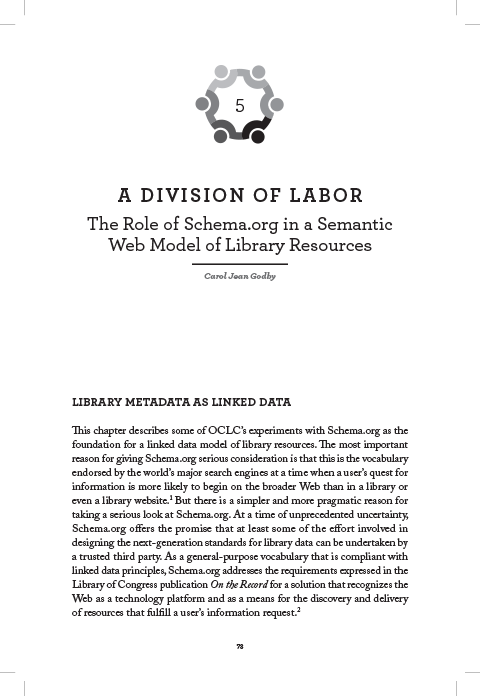-

Mining MARC's Hidden Treasures: Initial Investigations Into How Notes of the Past Might Shape Our Future
16 December 2016
Jay Weitz, Jenny Toves, Diane Vizine-goetz, Nannette Naught, Robert Bremer
Finding, interpreting, and manipulating the rich trove of data already present in MARC bibliographic records to produce systematized forms is an invaluable step in moving MARC toward a post-MARC, Linked Data future. Name access points, especially those fields in a controlled form, are the obvious place to find relationship information, but bibliographic notes and statements of responsibility are relatively overlooked sources of that information, waiting to be parsed and used. The Online Computer Library Center has been investigating means by which to find names and their associated role phrases, to match those names to authorized forms, and to match role terms and phrases to controlled vocabularies.
-

Linking FAST and Wikipedia
12 August 2016
Rick Bennett, Eric Childress, Kerre Kammerer, Diane Vizine-Goetz
This paper describes a research project to develop automated techniques for linking FAST (Faceted Application of Subject Terminology) to Wikipedia articles. The research is motivated by libraries’ interest in connecting library resources such as authority files to non-library linked data resources such as GeoNames and DBpedia (a dataset containing structured data extracted from Wikipedia). Of the approximately 183,000 non-subdivided topical headings in the FAST vocabulary, 76,000 terms were matched to Wikipedia article titles with 95% accuracy. Wikipedia links in the FAST authority file and FAST linked data enable people and software applications to take advantage of information in both of these resources.
-

Analysis of International Linked Data Survey for Implementers
1 July 2016
Karen Smith-Yoshimura
The International Linked Data Survey for Implementers conducted by OCLC Research in 2014 and 2015 attracted responses from 90 institutions in 20 countries. This analysis of the 112 linked data projects or services described by the 2015 respondents — those that publish linked data, consume linked data, or both — indicates that most are primarily experimental in nature. This article provides an overview of the linked data projects or services institutions or organizations have implemented or are implementing, what data they publish and consume, the reasons respondents give for implementing linked data and the barriers encountered. Relatively small projects are emerging and provide a window into future opportunities. Applications that take advantage of linked data resources are currently few and are yet to demonstrate value over existing systems.
-

A Division of Labor: The Role of Schema.org in a Semantic Web Model of Library Resources
15 June 2016
Carol Jean Godby
This chapter describes some of OCLC’s experiments with Schema.org as the foundation for a linked data model of library resources.